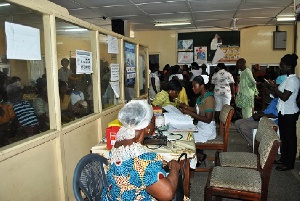The Bureau of Integrated Rural Development (BIRD), Kwame Nkrumah University of Science and Technology (KNUST), has called for deliberate effort to make research a key plank of public health policy planning in the country.
Dr. Sampson Enyin Edusah, a Senior Research Fellow, said this was the way forward to achieve intended outcomes – to substantially improve the quality of health of the population.
“Studies have shown that countries in sub-Saharan African can double their efforts in improving health outcomes if choices of health interventions and policies are based on solid scientific evidence.”
He was speaking at a day’s dissemination workshop held in Kumasi on evidence-based practice in the health service.
It was organized by BIRD to aid municipal and district health directors, drawn from across the Ashanti region, to identify and get their priorities right.
They were taught how to develop realistic, acceptable and effective policies, evaluate the impact of interventions and to be responsive to public health emergencies.
The programme provided the platform to critically examine the extent to which, evidence is used in the nation’s public healthcare delivery system - the value of evidence in public health practice.
Dr. Edusah indicated that the global shift was now towards increasing reliance on evidence in public health decision-making and said Ghana should not become an exception.
He said this had become important to bring cost-effectiveness into health programmes implementation.
He underlined the need for the Ghana Health Service (GHS) to identify and adopt strategies, which had been shown by research to work, to help raise the quality of care.
Mr. Ebenezer Owusu-Addo, another Research Fellow of the Bureau, said studies had established that there was minimal use of research evidence in local public health decisions and asked that this was changed.
Health News of Thursday, 29 September 2016
Source: GNA

















